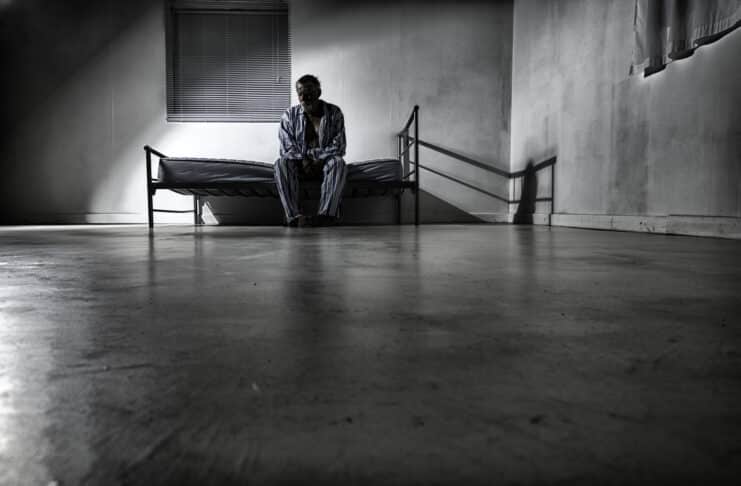The Department of Justice (DOJ) has found reasonable cause that the state of Alaska has abused children with behavioral disabilities and mental illnesses. According to investigators, authorities prematurely place minors in state-run institutions instead of trying community-based health care treatment options first. Besides appearing to unnecessarily institutionalize minors, DOJ found that psychiatric patients were often segregated for months at a time. If proven, the allegations of mistreatment would be a staggering violation of the Americans with Disabilities Act.
Per a DOJ press release, abuse is common at psychiatric hospitals and long-term residential treatment centers:
“Each year, hundreds of children, including Alaska Native children in significant number, are isolated in institutional settings often far from their communities,” said Assistant Attorney General Kristen Clarke of the Justice Department's Civil Rights Division. “Most of these children could remain in family homes if provided appropriate community-based services. We look forward to working with Alaska to bring the State into compliance with federal law and prevent the unnecessary institutionalization of children.” (emphasis added)
Children who are segregated in psychiatric residential treatment facilities commonly stay there longer than six months, and some of them are sent to states as distant as Texas and Missouri, thousands of miles from their families.
The department's investigation found that Alaska's system of care is heavily reliant on institutions and that key community-based services and supports needed to serve children with behavioral health disabilities in family homes, such as home-based family treatment, crisis services and therapeutic treatment home services, are often unavailable. As a result, many children with behavioral health disabilities, including a substantial number of Alaska Native children, are forced to endure unnecessary and unduly long admissions to psychiatric hospitals and psychiatric residential treatment facilities both within Alaska and in states across the country.
More and more psychiatric treatment abuse stories have come to light in recent years as the stigma around mental illness has slowly diminished. A September 2022 op-ed by patient rights activist Faith J. Myers in the Anchorage Daily News chronicled a seminar on improving patient outcomes at state-run institutions.
The conference, “Improving Lives,” touched on the lack of a statewide standardized grievance and appeals process for patients who claim abuse. Yet of the speakers, only Faith had the experience of being involuntarily committed. Some argued that event organizers had failed to listen to these marginalized voices.
Compared to almost every other state, the Alaska Legislature has passed few laws to protect psychiatric patients from possible mistreatment, injury or another form of trauma.
In her op-ed, Faith Myers reflected on what America's Last Frontier could do to salvage the reputation of its mental health system:
The state-run Alaska Psychiatric Institute opened its doors in 1962 with 225 beds. Psychiatric patients were still being sent to Oregon at that time. By 2021, the number of patients annually at API was 862, with only about 50 beds. Management at API was encouraged by state agencies to downsize and go in a new direction. Instead of improving a patient's rights and choices and preparing an individual to go back to society and community care, patients were released, often back to the streets, with insufficient preparation and support.
As of now, more than 90% of the acute care psychiatric patients in Alaska that spend at least one night in a facility for a forced evaluation or treatment do so outside of state-run API. By any measurement, they are not well protected by the state. Outside of API, the standard of psychiatric patient care receives even less scrutiny by the state.
Just like 60 years ago, private/nonprofit psychiatric facilities, even the ones financially supported by the state, are allowed to keep secret the number and type of patient complaints, injuries, traumatic events and whether patients are treated respectfully, because the state does not require independent patient exit polls.
The title of my presentation at the “Improving Lives” conference was: “Improving acute care psychiatric patient outcomes by improving psychiatric patient rights.” I pointed out that the Alaska Legislature has to go in a new direction. Instead of just creating new programs for psychiatric patients, psychiatric patient rights must be brought up to or exceed best practice in all programs as the best way to improve psychiatric patient outcomes.
READ NEXT: ‘Highly Graphic' Sex Trafficking Lawsuit Moves Ahead Against Ex-Fox News Host Ed Henry >>



Bad optics Alaska Must remedy
How many of these said disabilities are or were b brought on by Vaccines. Will come the day when we will know the truth, And the criminals will burn in HELL
Saying the ‘state’ is responsible is at best a deflection from the people who are actually personally responsible. A ‘state’ cannot ‘act’ – the people who serve the state are. Too nuanced, perhaps so but anything that takes away that personal responsibility and accountability is wrong.